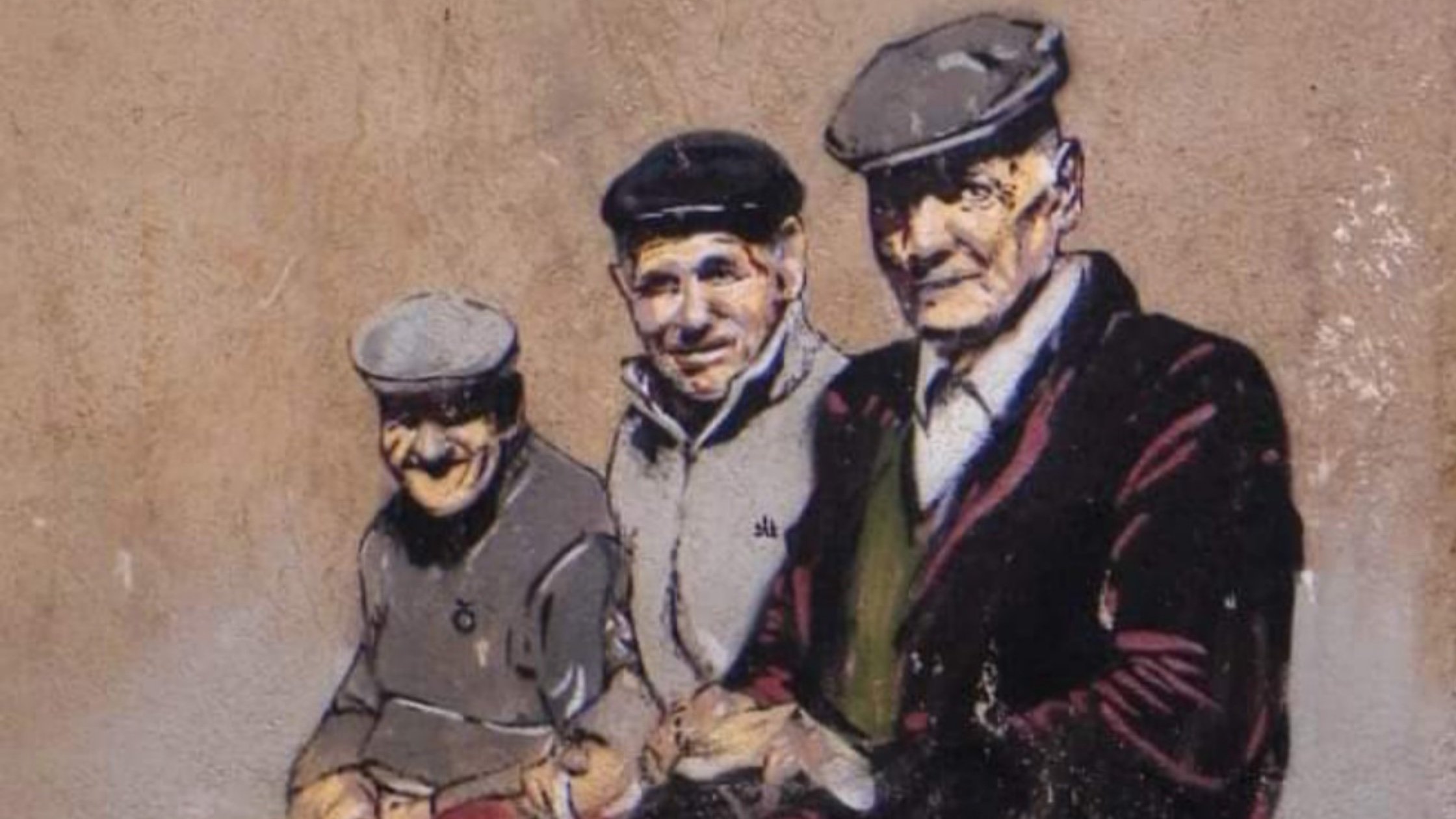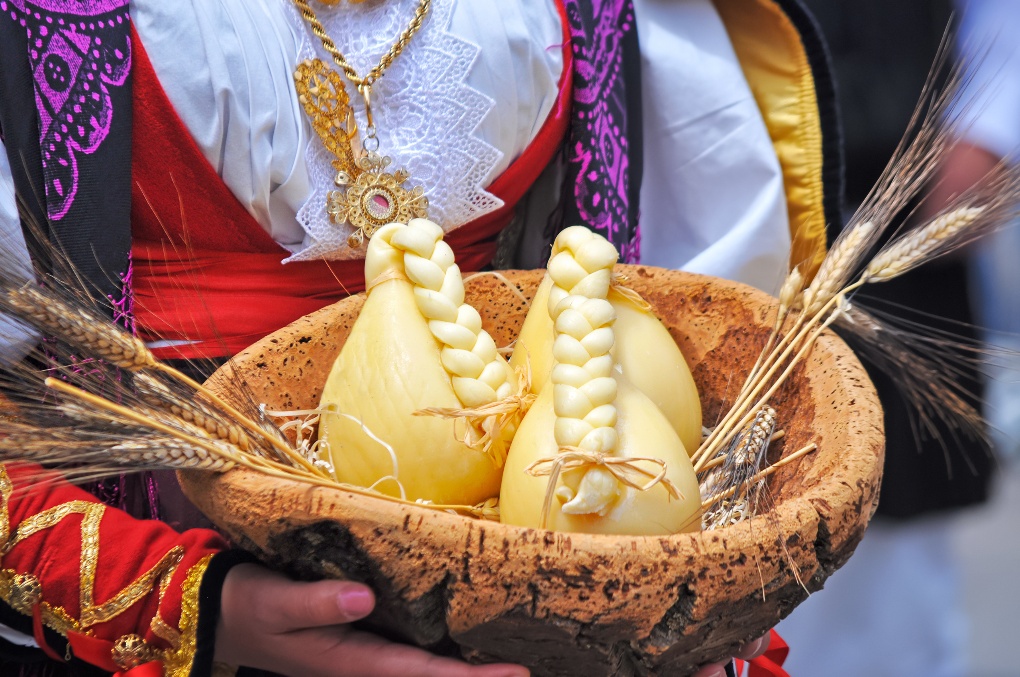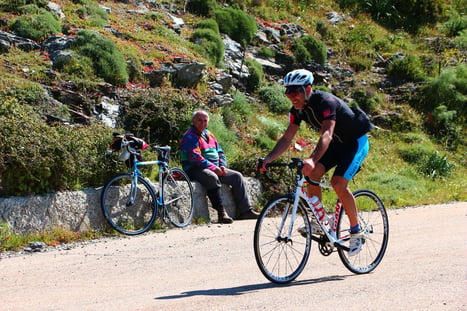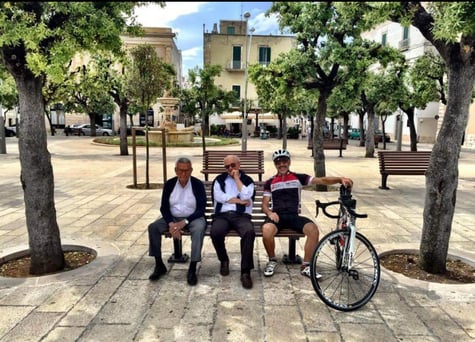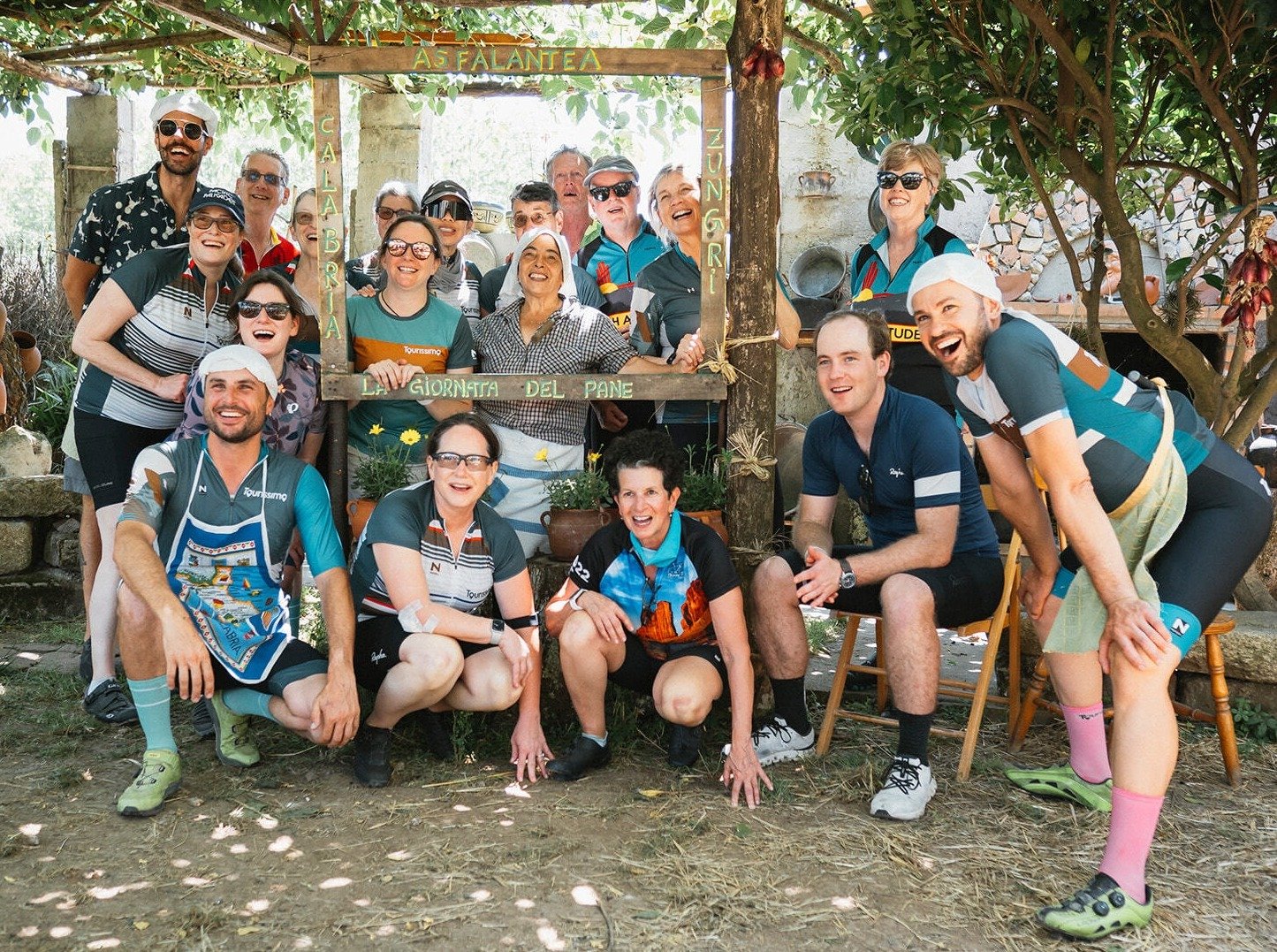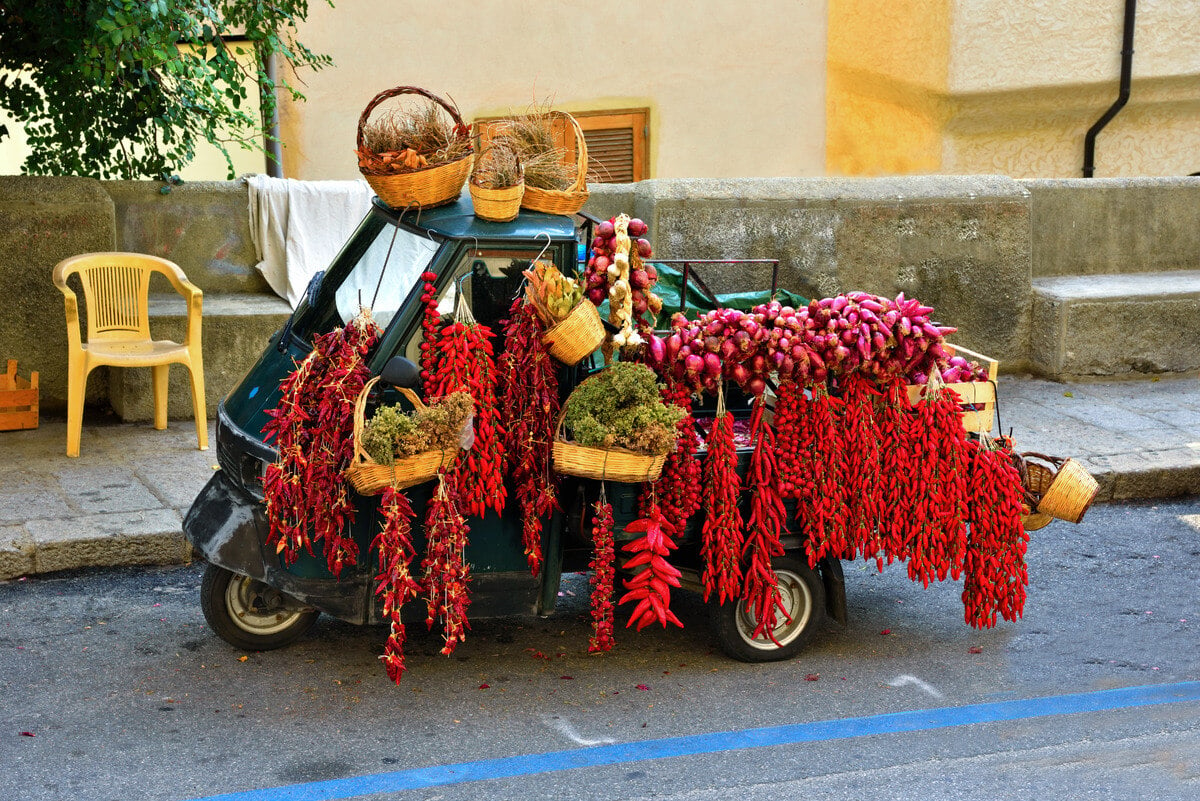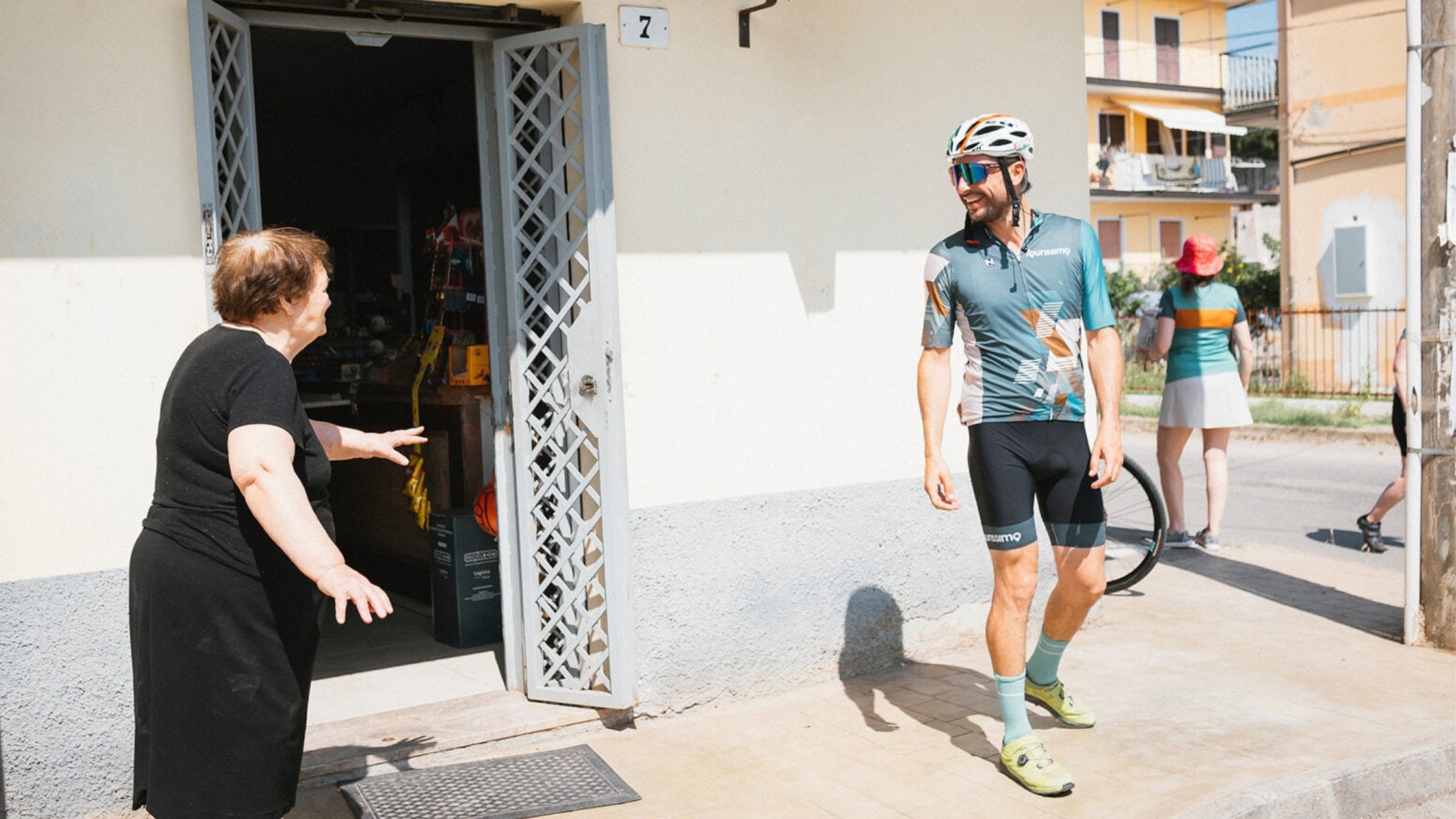Sardinia is one of the very few places in the world that boasts "Blue Zone" designation. This refers to areas across the globe where people live longer and have healthier, more natural lifestyles.
Our guides in Sardinia, Massimo and Renato, have just come back from scouting our brand-new Chef Bike Tour in Sardinia. We are excited for all of the memorable culinary experiences that are in store, and on top of that we can't wait to dive into the lifestyle aspects that have led to longevity and the Blue Zone designation.
What is a Blue Zone?
Let's start by going right to the source, to the person who defined what a Blue Zone is: Dan Buettner.
This is an excerpt from the paper, Blue Zones: Lessons From the World’s Longest Lived, by Dan Buettner, published in the American Journal of Lifestyle Medicine in 2016.
In 2004, Dan Buettner, CEO of Blue Zones LLC, was determined to uncover the specific aspects of lifestyle and environment that led to longevity. By teaming up with National Geographic and the National Institute on Aging, Dan and his team, found the 5 demographically confirmed, geographically defined areas with the highest percentage of centenarians (Loma Linda, CA, USA; Nicoya, Costa Rica; Sardinia, Italy; Ikaria, Greece; Okinawa, Japan; seen in Figure 1). These 5 areas were located using epidemiological data, statistics, birth certificates, and other research. These areas were dubbed Blue Zones, where people reach age 100 at 10 times greater rates than in the United States. Once these areas were established, they sent in a team of anthropologists, demographers, epidemiologists, and researchers to identify the lifestyle characteristics that might explain longevity. They found that the lifestyles of all Blue Zones residents shared 9 specific characteristics. These are called the Power 9.
To make it to age 100, it seems that a person must have to win the genetic lottery. However, many individuals have the capacity to make it well into the early 90s and largely without chronic disease. Blue Zones uncovered 9 evidence-based common denominators among the world’s centenarians that are believed to slow this aging process.
-
Move naturally. The world’s longest-lived people do not pump iron, run marathons, or join gyms. Instead, they live in environments that constantly nudge them into moving without thinking about it. They grow gardens and do not have mechanical conveniences for house and yard work.
-
Purpose. The Okinawans call it Ikigai and the Nicoyans call it plan de vida; for both, it translates to “why I wake up in the morning.” Knowing your sense of purpose is worth up to 7 years of extra life expectancy.
-
Downshift. Even people in the Blue Zones experience stress. Stress leads to chronic inflammation, associated with every major age-related disease. What the world’s longest-lived people have that others do not are routines to shed that stress. Okinawans take a few moments each day to remember their ancestors; Adventists pray; Ikarians take a nap; and Sardinians do happy hour.
-
80% Rule. Hara hachi bu—the Okinawan 2500-year old Confucian mantra said before meals reminds them to stop eating when their stomachs are 80% full. The 20% gap between not being hungry and feeling full could be the difference between losing weight or gaining it. People in the Blue Zones eat their smallest meal in the late afternoon or early evening, and then, they do not eat any more the rest of the day.
-
Plant slant. Beans, including fava, black, soy, and lentils, are the cornerstone of most centenarian diets. Meat—mostly pork—is eaten on average only 5 times per month. Serving sizes are 3 to 4 oz, about the size of a deck of cards.
-
Wine @ 5. People in all Blue Zones (except Adventists) drink alcohol moderately and regularly. Moderate drinkers outlive nondrinkers. The trick is to drink 1 to 2 glasses per day (preferably Sardinian Cannonau wine), with friends and/or with food. And no, you cannot save up all week and have 14 drinks on Saturday.
-
Belong. All but 5 of the 263 centenarians interviewed belonged to some faith-based community. Denomination does not seem to matter. Research shows that attending faith-based services 4 times per month will add 4 to 14 years of life expectancy.
-
Loved ones first. Successful centenarians in the Blue Zones put their families first. This means keeping aging parents and grandparents nearby or in the home (it lowers disease and mortality rates of children in the home too.). They commit to a life partner (which can add up to 3 years of life expectancy) and invest in their children with time and love. (They’ll be more likely to care for aging parents when the time comes.)
-
Right tribe. The world’s longest lived people chose—or were born into—social circles that supported healthy behaviors, Okinawans created moais—groups of 5 friends that committed to each other for life. Research from the Framingham Studies2 shows that smoking, obesity, happiness, and even loneliness are contagious. So the social networks of long-lived people have favorably shaped their health behaviors.
Located off the coast of Italy, Sardinia is home to the world’s longest-lived men. This community of shepherds walk 5 mountainous miles a day or more. This natural movement provides all the positive cardiovascular benefits you might expect and also has a positive effect on muscle and bone metabolism without the point pounding of running marathons. The classic Sardinian diet is plant based, consisting of whole-grain bread, beans, garden vegetables, and fruits. Meat is largely reserved for Sundays and special occasions. Sardinians drink wine moderately. Cannonau wine has 2 or 3 times the level of artery-scrubbing flavonoids as other wines. Moderate wine consumption may help explain the lower levels of stress among men.
Okinawa
Home to the world’s longest-lived women, these South Pacific islands offer many secrets to longevity. The Okinawa tradition of forming a moai provides secure social networks. These safety nets lend financial and emotional support in times of need and give their members the stress-shedding security of knowing there is always someone there for them. In Okinawa, at age 5, children are put into these committed social networks. One specific moai that Dan discovered had been together for 97 years; the average age of the group is 102. They meet every day to drink sake and gossip. If one of them does not show up, the other 4 put on their kimonos to walk across the village to check on their friend. Okinawans also attribute their longevity to the old Confucian mantra said before meals Hara Hachi Bu, which reminds them to stop eating when 80% full, so they do not overeat. They also hold a strong sense of purpose in their family. One centenarian described the feeling of holding her great great great grandchild as “Jumping into heaven.”
Loma Linda
This Adventist community in California outlives the average American by a decade. Taking their diet directly from the Bible they consume a vegan diet of leafy greens, nuts, and legumes. They recognize the Sabbath and downshift for 24 hours every week. Many of the Adventists are still very active into their late 90s; Dr Ellsworth Wareham, who is 95 years old, was told that a contractor wanted $6000 to build a privacy fence in his yard. Instead of paying the contractor he decided to do it himself. After 3 days of work he ended up in the hospital, but Ellsworth was not on the table, he was the surgeon performing the open-heart surgery, one of 20 surgeries performed that month. Similarly, Marge Jetton age 105 woke up every morning at 5:30 am read her Bible, had a breakfast of slow cook oatmeal, nuts, and dates with soymilk and a prune juice shooter. She would then ride her stationary bike for 30 minutes and get in her Cadillac and drive to her volunteer jobs for 7 different organizations.
Nicoya
Nicoyans spend just 15% of what America does on health care and are more than twice as likely than Americans to reach a healthy age of 90 years. Faith and family play a strong role in Nicoyan culture. So does plan de vida, or reason to live, which helps Nicoyan elders maintain a positive outlook and active lifestyle. Nicoyans eat little to no processed foods but plenty of antioxidant-rich tropical fruit. But they also have 1 unique secret: calcium- and magnesium-rich water, which wards off heart disease and promotes strong bones.
Ikaria
People on this tiny Aegean island live 8 years longer than Americans do. They experience 20% less cancer, half the rate of heart disease, and almost no dementia. Ikarians eat a variation of the Mediterranean diet, with lots of fruits and vegetables, whole grains, beans, potatoes, and olive oil. Ikarians also downshift with a mid afternoon break. People who nap regularly have up to 35% lower chances of dying from heart disease. It may be because napping lowers stress hormones or rests the heart. One Ikarian in particular, Stamatis Moraitis, moved to America when he was 22 years old to pursue the American dream. He was a painter, and immediately started having success, bought a house, married, and had 3 kids. At the age of 66 years, he developed terminal lung cancer. Instead of dying in America, he decided to move back to Ikaria and moved in with his parents. He started breathing the air, drinking the wine, and eating a Mediterranean diet. After a few months, he planted a garden not planning on ever getting to harvest the vegetables; 37 years later he has a vineyard producing 200 L of wine a year. His secret he says? “I just forgot to die.”
Now, let's go to our local source, our guides in Sardinia. We asked Massimo and Renato to give us their take on what makes a Blue Zone special and why towns in the mountains of Sardinia are home to so many centenarians.
A Blue Zone is a truly rare place, almost enchanted. Incredible as it may seem to you, the inhabitants of a Blue Zone seem to have discovered the elixir of life. Sardinia is a land of happy and healthy centenarians, and in the mountain villages of Sardinia the percentage of the population living to at least 100 is the highest in the world. Maybe they themselves do not realize it, but they have shown us, in practice, the secret to a long and healthy life. What matters most is that these splendid seniors enjoy excellent health above all, and they are happy. They smile at life!
Humanity has been looking for the elixir of long life everywhere for centuries, and it has remained only a myth, an unattainable mirage. Yet this secret of happiness was hidden in small remote villages in the mountains of Sardinia. Today there are five Blue Zones recognized around the world, and in 2004 the Sardinian province of Nuoro was the first to be discovered and studied.
As soon as the discovery was announced, prestigious publications, such as National Geographic and the New York Times, as well as great academics and best-selling writers, took an interest in this phenomenon. How is it possible? Initially it was thought that the secret to such a high concentration of centenarians was genetics and they began to study the DNA of this population.
But they soon realized that the secret (as usual) was not hidden at all; it was under their eyes and you didn't need a microscope to see it. Everything was much simpler: the elixir of life is made up of an active life (not sedentary), good food (simple and local, and mostly vegetables and legumes), a good glass of wine (rich in antioxidants and obtained from the grapes from local vineyards), delicious cheese (from local goats), and fresh air.
A Blue Zone is a place where people have been able to preserve their ancient ways of living, including recognizing the importance of the elderly in society. They are not marginalized from family or village life and they are still active and independent. They still cultivate the vineyards and their vegetable gardens. Their company is a pleasure: they are givers of good humor and laughter. The will to live is another secret of the Blue Zone.
Blue Zone on Tour
On our new Chef Bike Tour in Sardinia, we’ll ride straight through the Blue Zone and appreciate the authentic food and the excellent wine, just a few reasons Sardinia holds a world record in longevity, together with an active life in the open air and a social life still linked to the community. Sardinians still hunt, fish and harvest the food they eat. They remain close with friends and family throughout their lives, retaining a rich social life that wouldn’t be complete without plenty of laughter and a glass or two of wine.



